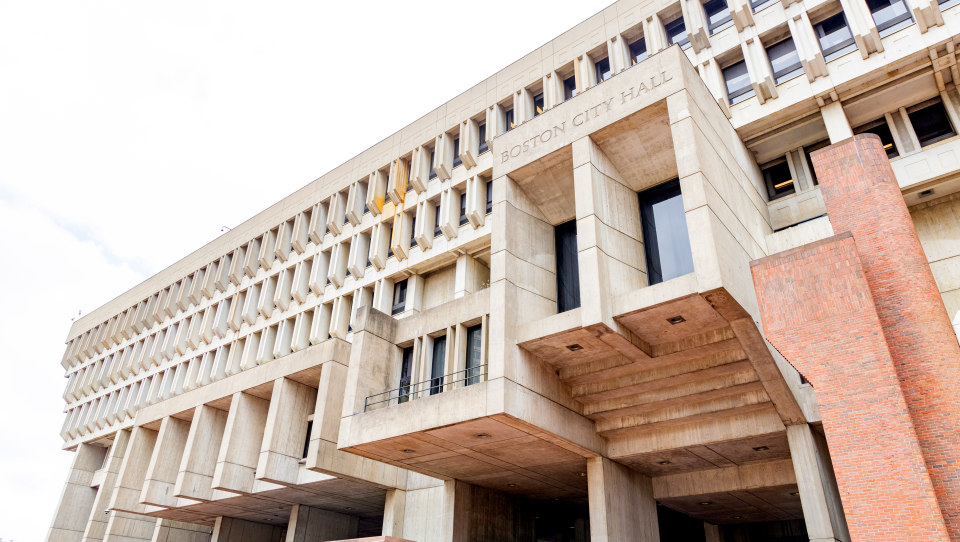Boston city councilors approved funding from the federal government for local shelters and staff that provide support to residents, and to an increasing number of migrants seeking humanitarian relief.
President-elect Donald Trump and his advisors have made it clear their priorities will include deporting immigrants of varying immigration statuses and levying funds against so-called sanctuary cities and states that have immigrant-friendly policies.
Advocates say that the soon-to-be dispensed funds in Boston will be important for shoring up resources before the new administration begins.
The measure passed last week 12-1, with Councilor Ed Flynn being the single no vote. The grants — a combined total of more than $2.3 million — will be used to increase capacity at local shelters, and hire staff through the Boston Public Health Commission to support migrants. While the funds were already granted though the federal government, the city council had to vote on their usage to be dispensed by the Mayor’s Office of Housing.
Councilor Liz Breadon, who chairs the committee, said there’s a “sense of urgency” to clear any federal grants and process them ahead of the new administration.
“I think there’s concern given that President-elect Trump has been very clear about his intention to round up and remove migrants from the United States,” she said. “It really remains to be seen whether how far he will go in implementing what I would call a threat to our immigrant communities. But, you know, I think we have to anticipate that he is fully intending to execute this plan.”
Breadon said 85% of funds will be used to support 80 emergency shelter beds at the Boston Rescue Mission.
The Boston Public Health Commission operates two emergency shelters, the Woods Mullen Shelter and the Southampton Street Shelter, for individuals experiencing homelessness, regardless of immigration status. They connect clients to substance use support, housing and medical care. Last year they served over 4,000 people, expecting more this year. Case managers also work with individuals to address “barriers that may exacerbate homelessness” which includes the lack of state ID, social security card, mailing address, and work authorization for migrants.
“We provide case management supports to all guests, but new migrants have specific case management challenges, for example, limited English proficiency,” said a Boston Public Health Commission spokesperson.
The remaining grant money will be used for two new case managers at the Boston Public Health Commission dedicated to helping new migrant arrivals access shelter services, employment and permanent housing.
Elizabeth Sweet, executive director of Massachusetts Immigrant and Refugee Advocacy Coalition, said the funds are necessary given the difficulties of finding housing for migrants in Massachusetts.
“The reality is that if folks are unhoused, that that could put them at greater risk for coming into some type of contact with law enforcement,” she said.
Sweet said it’s unlikely that the Trump administration will be able to carry out all of its immigration-related policies in the first months in office, but there “certainly is a really risk to federal funds,” as a method of retaliation to states and cities that don’t align with Trump’s immigration vision.
Getting funds out to communities, especially for immigration is essential before January, advocates said.
“I do think that having that money come in now is especially important because supportive money on that front might not be there once the Republicans in D.C. get their hands on the budget,” said Jonathan Cohn, policy director for Progressive Massachusetts.
Boston also has the Trust Act, an ordinance that prohibits police from asking people about their immigration status, sharing information with U.S. Immigration and Customs Enforcement, making arrests as a result of ICE warrants, and transferring people to immigration custody.
“We shouldn’t put ourselves in a situation where we don’t have funding because the federal government says 'We’ll only give you this funding if you repeal this Trust Act,”’ said Cohn. He recommends the city do everything it can to boost resources before January.
“So we continue to be a welcoming space to refugees coming here and can give them a place to stay while they eventually can get a work permit or can get safe housing elsewhere,” he said.
Cohn also said that while other cities and towns have similar language to the Trust Act, this could be an opportunity for the state to pass something that is a “statewide provision,” that standardizes rules around cooperating with immigration enforcement across communities.
Lt. Gov. Kim Driscoll, who has been heavily involved in shaping immigration policy for the state, didn’t comment specifically on federal funds for shelters, but said that as a mayor during Trump’s first term, she’s seen this issue before.
“I remember what the challenges were so we can better position ourselves to work collectively. States and cities became really, really critical backstop during the last Trump administration,” she said. “I think we envision that happening again and those conversations are ongoing.”





